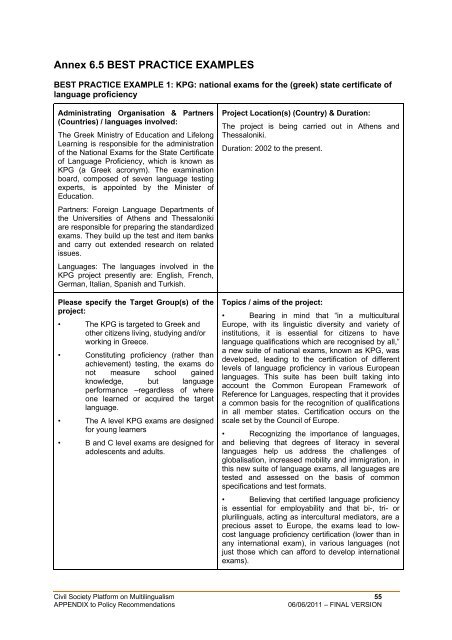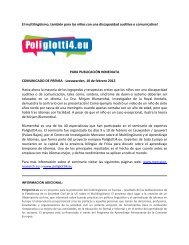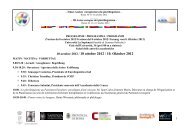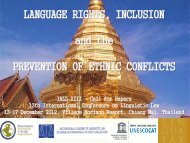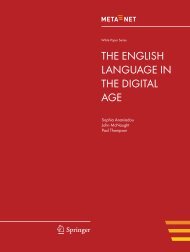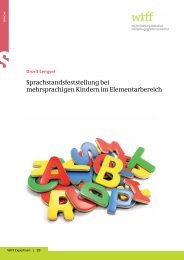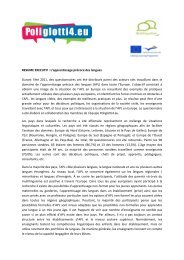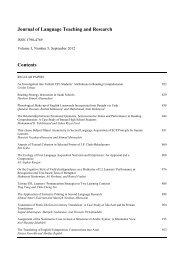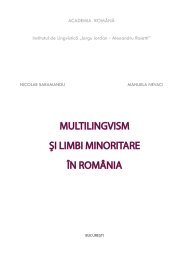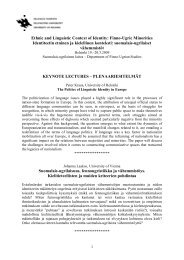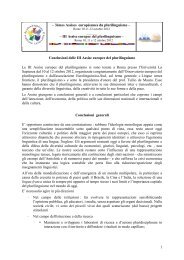FULL VERSION - European Commission - Europa
FULL VERSION - European Commission - Europa
FULL VERSION - European Commission - Europa
You also want an ePaper? Increase the reach of your titles
YUMPU automatically turns print PDFs into web optimized ePapers that Google loves.
Annex 6.5 BEST PRACTICE EXAMPLESBEST PRACTICE EXAMPLE 1: KPG: national exams for the (greek) state certificate oflanguage proficiencyAdministrating Organisation & Partners(Countries) / languages involved:The Greek Ministry of Education and LifelongLearning is responsible for the administrationof the National Exams for the State Certificateof Language Proficiency, which is known asKPG (a Greek acronym). The examinationboard, composed of seven language testingexperts, is appointed by the Minister ofEducation.Partners: Foreign Language Departments ofthe Universities of Athens and Thessalonikiare responsible for preparing the standardizedexams. They build up the test and item banksand carry out extended research on relatedissues.Languages: The languages involved in theKPG project presently are: English, French,German, Italian, Spanish and Turkish.Please specify the Target Group(s) of theproject:• The KPG is targeted to Greek andother citizens living, studying and/orworking in Greece.• Constituting proficiency (rather thanachievement) testing, the exams donot measure school gainedknowledge, but languageperformance –regardless of whereone learned or acquired the targetlanguage.• The A level KPG exams are designedfor young learners• B and C level exams are designed foradolescents and adults.Project Location(s) (Country) & Duration:The project is being carried out in Athens andThessaloniki.Duration: 2002 to the present.Topics / aims of the project:• Bearing in mind that “in a multiculturalEurope, with its linguistic diversity and variety ofinstitutions, it is essential for citizens to havelanguage qualifications which are recognised by all,”a new suite of national exams, known as KPG, wasdeveloped, leading to the certification of differentlevels of language proficiency in various <strong>European</strong>languages. This suite has been built taking intoaccount the Common <strong>European</strong> Framework ofReference for Languages, respecting that it providesa common basis for the recognition of qualificationsin all member states. Certification occurs on thescale set by the Council of Europe.• Recognizing the importance of languages,and believing that degrees of literacy in severallanguages help us address the challenges ofglobalisation, increased mobility and immigration, inthis new suite of language exams, all languages aretested and assessed on the basis of commonspecifications and test formats.• Believing that certified language proficiencyis essential for employability and that bi-, tri- orplurilinguals, acting as intercultural mediators, are aprecious asset to Europe, the exams lead to lowcostlanguage proficiency certification (lower than inany international exam), in various languages (notjust those which can afford to develop internationalexams).Civil Society Platform on Multilingualism 55APPENDIX to Policy Recommendations06/06/2011 – FINAL <strong>VERSION</strong>


